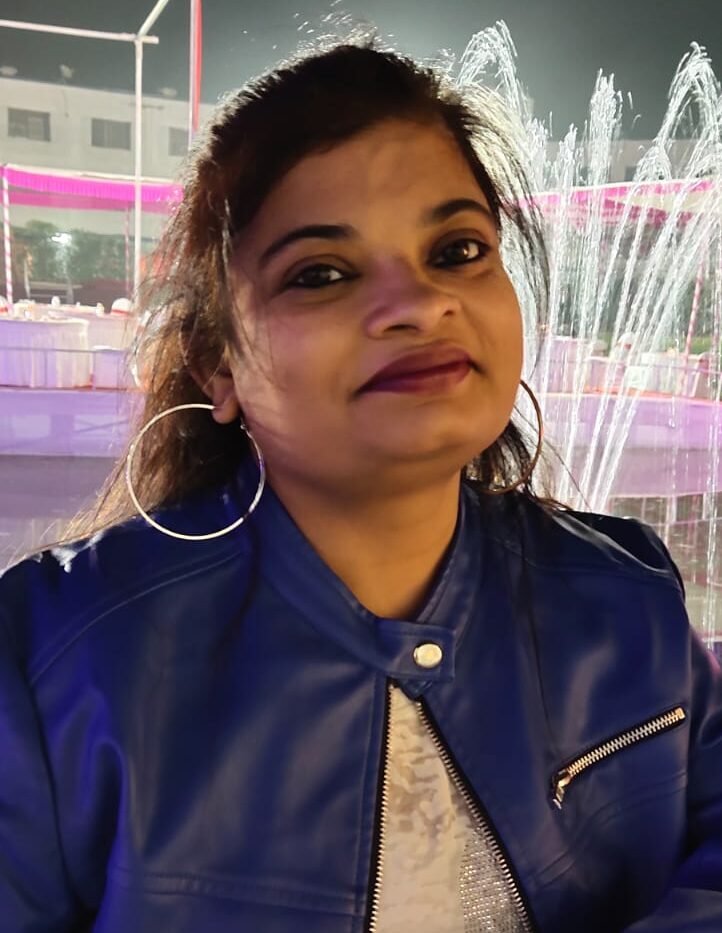Our Vision
Our Vision is to provide an environment that enables every child to have opportunities to learn and enable all round development. The children are encouraged to question, explore, investigate and acquire skills that will make them learners for life. The Child’s play is his purpose at that moment. They prefer to work in a group or explore individually depending on their needs. Such an attitude will be nurtured and their preference will be respected. This is a place where we identify every child as a unique individual. We believe, by giving them plenty of opportunities to look for partners or group of peers to accomplish their task, enhances their social skills. Teach the child to repeat what you say He may do it for half a day Give the child some books to peek He may look at them for a week Observe the child and entice him to play With the right tools explore each way See him discover, learn and labour Watch him enjoy learning every hour!
Our Curriculum
Curriculum is the set of experiences, activities and events, direct or indirect which occur in an environment specially planned to foster children’s learning and development. In simple terms, Curriculum is a plan for learning. Our Early Childhood Curriculum is focused on the following areas of development: Physical Intellectual Language Creative Personality Our Early Childhood Curriculum is related to the child’s developmental readiness, interests, questions, style of learning and the cultural context in which the child finds himself. A huge range of non-toxic specially designed educational aids that stimulate their thought processes and imagination, ensures that we have tools to achieve their intellectual development. The curriculum provides opportunities for the children to make choices and decisions about their work. It also encourage them to help and support any other child who may need help. This kind of mutual giving and taking of help, helps inculcate in them a sense of social awareness and also helps them become better learners. We also inculcate in the child, a respect for the environment and our world. Our group activities include music, drama, puppetry, story-telling and many other activities that allow children to express themselves in different ways and offer opportunities to enhance their social skills.
Initial Days
During the child’s first days at school, we need to be able to settle them in comfortably without disturbing other children who are already present in the school. We may hence take the child in for a limited period of time (45 minutes) increasing the time over a period of 2 weeks. The time taken will be entirely subject to the nature of the individual child, and will vary from child to child.
Parental Involvement
A child below 6 has two big influences: Home & School. It is essential that both these spheres speak the same language so that the child can progress in a positive and unambiguous manner. To keep this process smooth, we urge parents to attend all the Parent-Teacher Interaction sessions that will help us understand your children better. We also urge parents to inform us about any incidents/ circumstances that may have occurred out of school that could affect the child. (Eg. Lack of sleep, Illness, Birth of a sibling, Loss of a treasured toy etc). A child who is tense or unhappy will not be able to play or learn properly, so it is important for parents and pre- school staff to work together to help the child to feel confident and secure in the group. This takes long for some children and parents should not feel worried if their child takes a while to settle. It is good for a parent to stay with the child on their first session as this helps the child to integrate faster and gives you the opportunity to become familiar with the routine.
Visitors / Observation
We would like parents to visit our school and watch their children at work at least 2-3 times a year. This helps you understand our methods of work. It is important that the child have a connected network between his parents and school in order to minimize any conflicts. There are rules to be observed in the environment and it is important to adhere to them to avoid disturbing the children.
Food
Parents should provide a packed lunch. Please ensure that you send healthy snacks to school. Junk food like chips, fizzy drinks, Maggi etc are not allowed.
Attire
Please ensure that you send your children in loose fitting and comfortable clothes. and easy to wear shoes. We encourage and teach the children to be independent and perform all their activities themselves. It would be a huge deterrent to the confidence of the child if you attire them in clothes and footwear that are not easy to handle by themselves. Please send a change of dress everyday in their bags. If we send back soiled clothes, please ensure that they are replaced the next day.
Illness
If your child has a temperature, is sick or has diarrhoea, please do not send him/her to school until the symptoms have stopped. Please do not send your ward to school if they are suffering from any contagious illnesses like viral fever, typhoid etc. If the illness is long term we could administer medicine in school based on your written instructions.
Toilet Training
We expect the children to be toilet trained by the age of 2, however if there is any challenge, we will do our bit to ensure that they will get trained. But we do expect parents to take primary responsibility to ensure that their children are toilet trained.
Injury / Accidents
In case of any injury, we will be ministering first aid to the children or in some cases going to the nearest doctor. We may not always wait for the parents to administer any necessary treatment.
Birthday, Festivals and Celebrations
Birthday is a very special day for both parents and children, we encourage parents to celebrate their child’s birthday with a fixed appointment in our school premises. You may distribute books or non toxic crayons to the children instead of sweets or chocolates as we need to respect the fact that children are prone to food allergies. Festivals call for celebrations. As it is a part of their cultural experience, we encourage the children to experience various forms of celebrations without hurting any religious or other sentiments.
Drop off and Pick up
Drop off and pick up is a very important part of child’s day at school, therefore it is necessary to ensure that your child is handed over to the concerned teacher. You may leave after telling a goodbye to your child and reassuring that you will be back to receive. Some pointers to be followed during pick up and drop are as follows: Please ensure that you are not speaking on the mobile and leave the child at the gate and walk off. Children need to know that you are seeing them off or receiving them properly. At the same time, do not linger saying 3-4 rounds of goodbyes. While picking up, the children are excited at seeing you again, please ensure that you greet them affectionately, and not disinterestedly.
Assessments
Assessment in early years is a continuous process. Therefore we need to have a system that constantly evaluates and checks on the child’s progress because development takes place so rapidly at this stage. We have a system which helps us keep updates and records about your child more efficiently. We ensure that the parents are informed about the child’s progress and developments at regular intervals.
Teachers
Our staff is trained to ensure that our objectives for each child are met in a caring and warm way. They are trained to facilitate learning, observe, record, and evaluate on a daily basis. We have a healthy student – teacher ratio to ensure that every child’s needs are met.
Emergency Procedure
In case of emergencies like sickness, strike, shut-down of the city the parents will be informed through Phone call / Mail however in case the parents fail to respond for the above , the emergency contact details given in the admission form will be used.
Communication with Parents
Regular communication will be done on a regular basis by the teacher through the daily calendar. The parents can use the same for any clarifications. Emails are generally sent by the management of the school to inform important events, holidays or any emergencies. Phone calls will be generally made in case of medical emergencies or clarifications. We will organise parent-teacher meeting twice a year which will be intimated to you through the daily calendar.
Field Trips
Field trips are a popular activity for all children. Since they love to explore new places with their friends such activities are encouraged with good planning to ensure a successful trip. Field trips are done twice a year to places like Museum, National parks, zoo etc. Necessary measures will be taken by the school while conducting these activities.
Conclusion
- Identify the child’s interests
- Assess the child’s development
- Make the child independent
- Get the child to enjoy learning
- Instill respect for environment
- Encourage social compatibility






